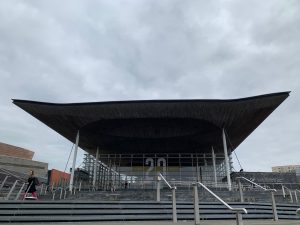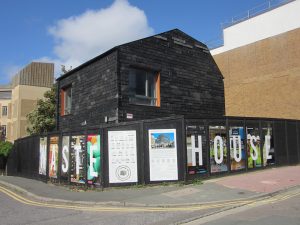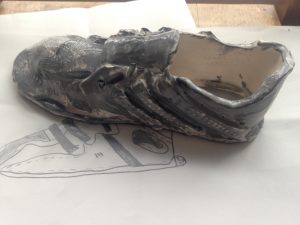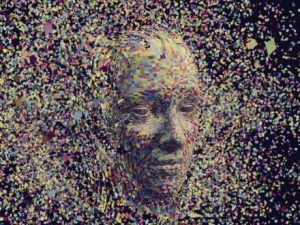Category: Design comment
-

Professor Godfrey Boyle
Professor Godfrey Boyle, Emeritus Professor in the Design Group at the Open University, has sadly died. After studying Electrical Engineering at Queens University, Belfast and working as journalist for Electronics Weekly, in the early 1970s he founded ‘Undercurrents’, a pioneering quarterly magazine of ‘radical science and people’s technology’. ‘Undies’ initially came out as a collection […]
-

Design Council and the OU Design Group
The Design Council visited the OU last week to talk about their ongoing work on the Design Economy. This work overlaps with our own on design identities and students – rather than asking ‘what is design?’ (and getting into the usual trouble…), it can be useful to ask “What are designers doing?” and “Who is […]
-

Design for democracy
Dockland Democracy When design academics at the OU were planning visits with students, without consciously realising it, all of the visits chosen were to statement buildings on the waterside in reclaimed dockland areas. Following the visits to the V&A Dundee and the Riverside Museum Glasgow, the final visit was to the Senedd, Welsh Assembly building […]
-

Models
Something on models caught my eye at a conference inspired by the work of Lionel March Professor of Design at the OU 1976-1981. Several people from the OU past and present, Phil Steadman (UCL), George Stiny (MIT), Ramesh Krishnamurthi (CMU) and Iestyn Jowers, joined colleagues from around the world including his former students Helen Couclelis (UC Santa […]
-

Making a (political) design statement
The past weekend saw several members of design@open venturing to Scotland to meet up with students for visits to two iconic buildings, the V&A Dundee and the Riverside Museum, Glasgow. Both buildings have a lot in common, they are both designed by prominent architects, situated on the riverside and have a tall sailing ship anchored […]
-

Can we design truly ‘zero carbon’ buildings?
At the end of 2018, after repeated advice by the Intergovernmental Panel on Climate Change, the European Commission called for a climate neutral Europe by 2050. For the construction industry achieving this will be particularly problematic. Not only is it the industry responsible for the highest percentage of global emissions, it already has exceptionally high […]
-

Architectural Innovation in Energy Systems
Electricity systems underpin much of everyday life in the city. As urban populations expand, become more affluent and carbon reduction targets ramp up it is likely that such systems will need to change considerably over the coming years. Here many commenters argue that wholesale transitions to low carbon robust electricity systems are needed. However, as […]
-

The design thinking of children
One may argue that we are all natural designers. From very young age, we are designing: we are looking around us with a critical eye, we develop opinions about things and spaces that we like or dislike, we are dreaming about a better future, but also we experiment and make things that could make our […]
-

AI, are you a watcher or a skeptic?
Artificial intelligence (AI) is rapidly being used to aid humans in many scenarios and everyday tasks or challenges. From health and welfare to leading military systems AI is already being seen by designers and developers, as futuristic technologies which are available today. But what is AI technology? What can it do? What can it do for humans now and […]
-

Design dreams of digital worlds – but is digitech sympathetic?
The architectural collective Assemble– winners of the Turner Prize – continue to explore the designed and manufactured world in the second part of BBC Radio 4’s series, The Sympathy of Things inspired by John Ruskin’s views on aesthetics and the central role of sympathy. With Amica Dall and Giles Smith, the BBC state “The series is an argument […]
